Tarot: The (Re)Making of a Language
Featuring decks and original works by Maggie Bard, Chicome Itzcuintli, Gabriella Santiago-Vancak, Bran Sólo, Matt Stansberry, and David Wilson. Curated by Laurence Ross. On view through May.
The Tarot, rooted in ancient archetypes, has continually transcended the time periods of its origination to experience resurgences of popularity. Innovations in the Tarot are most evident when an artist aims to illustrate this transcendence, restoring potency—and urgency—to pictures of swords, scepters, and queens on thrones. Whether a practitioner bases their work on image or narrative, interpreting or “reading” the Tarot always blends art with craft. This exhibition aims to show how artists create contemporary interpretations of the Tarot inspired by the places in which they work, with a particular focus on how the artists’ understanding of landscape—both physical and cultural—has shaped their translation of the cards into modern language. Featured decks will include Black Moon Tarot (Maggie Bard), Tarot Mexicayotl (Chicome Itzcuintli), Charm City Tarot (Gabriella Santiago-Vancak / Laurence Ross), Tarot de Laguna (Bran Sólo), and Rust Belt Arcana (David Wilson / Matt Stansbury).
Part of What Can I Do?: Spirituality, Civic Engagement, & Artistic Practice, a series of exhibitions made possible with support from the Greater Milwaukee Foundation's Mary L. Nohl Fund.
Listen to Joy Powers' interview with curator Laurence Ross on WUWM's Lake Effect.
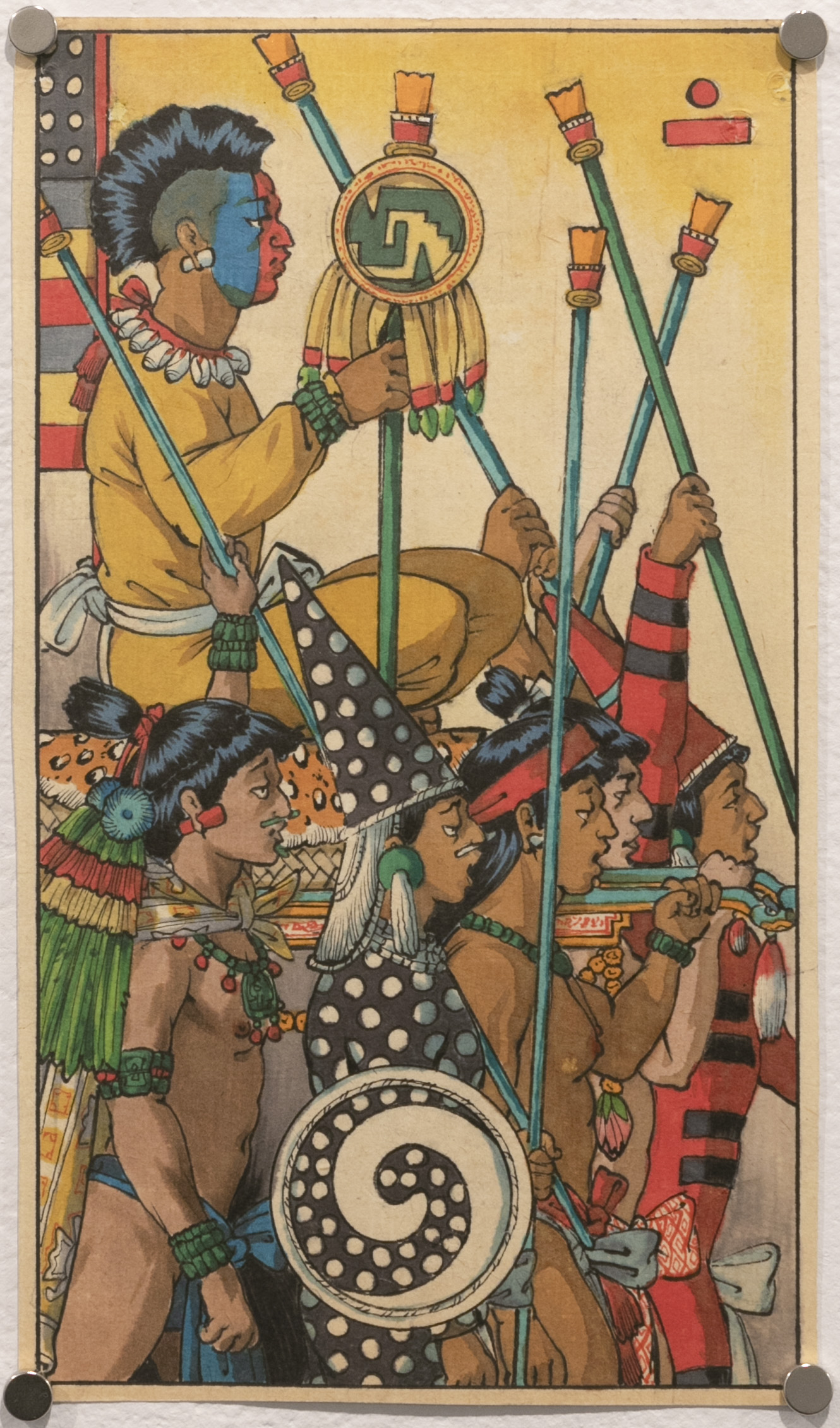

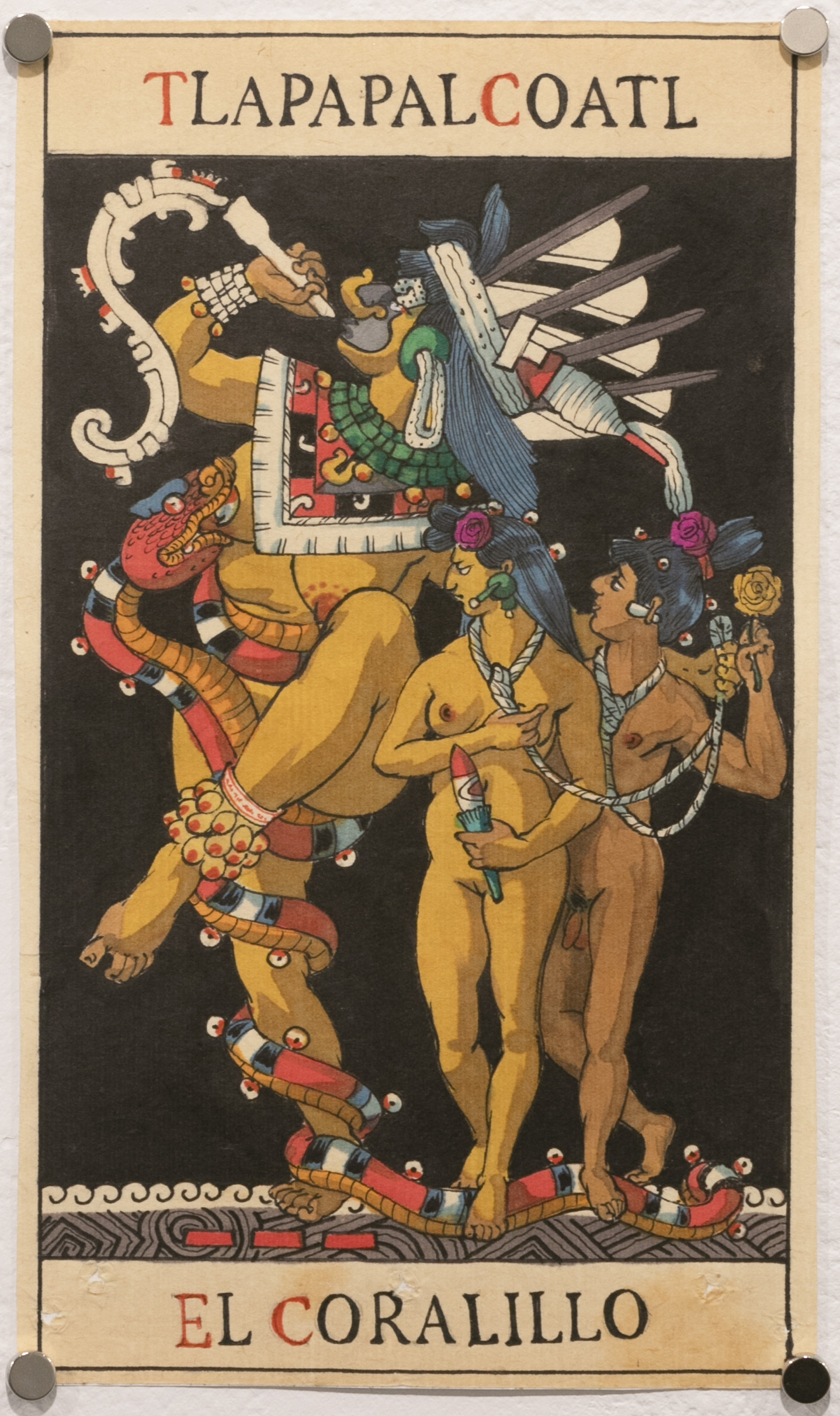

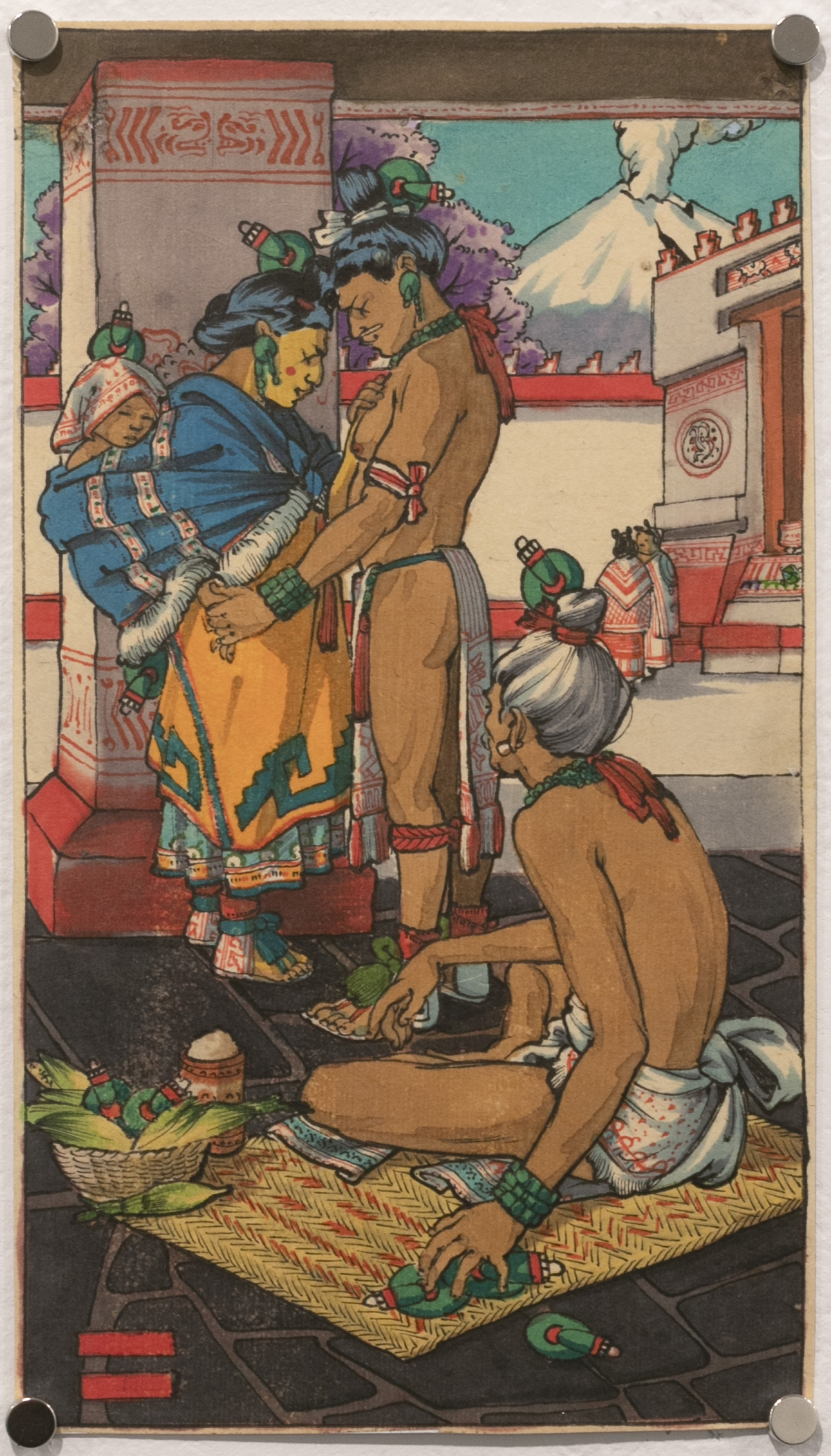
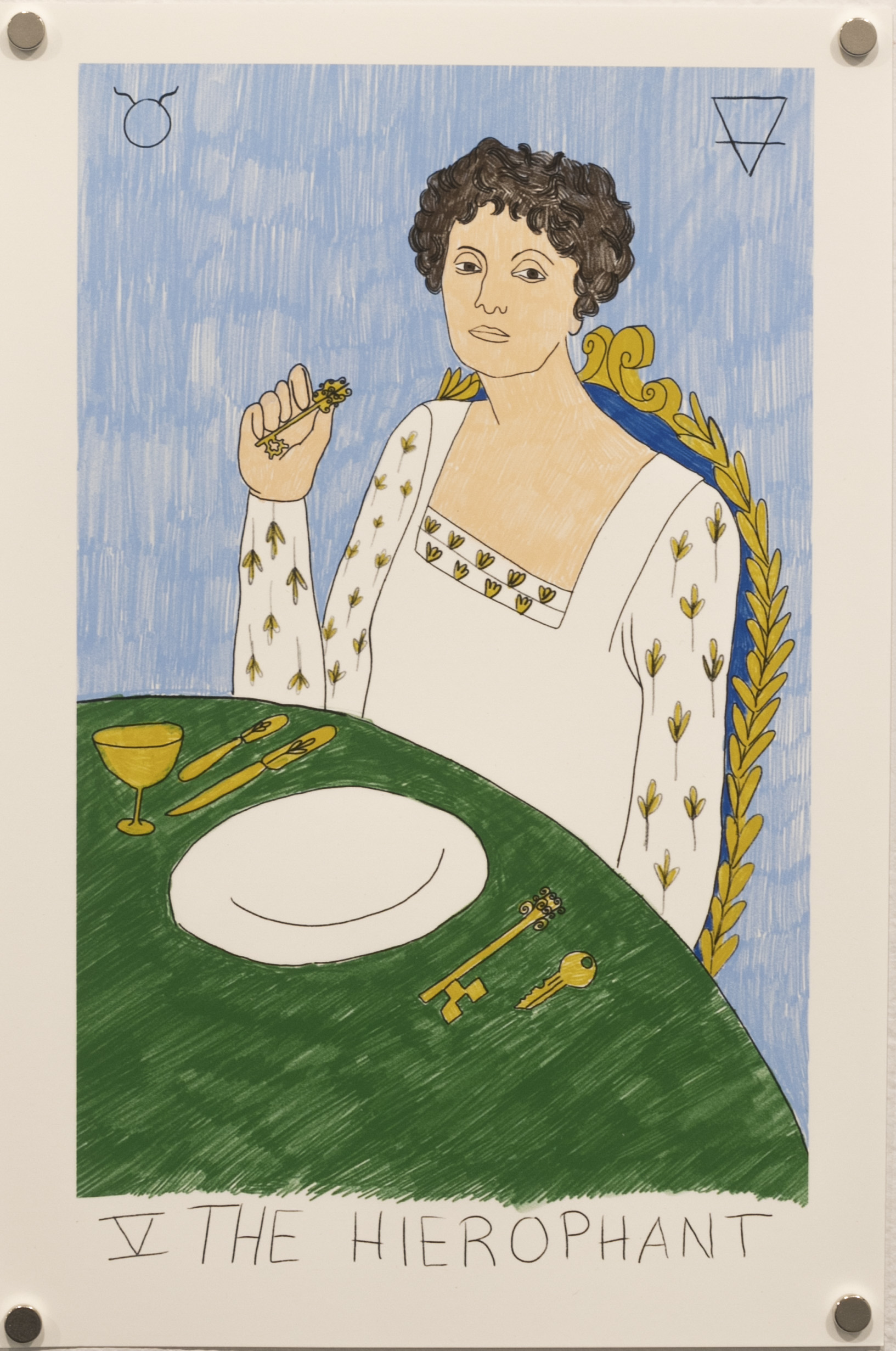
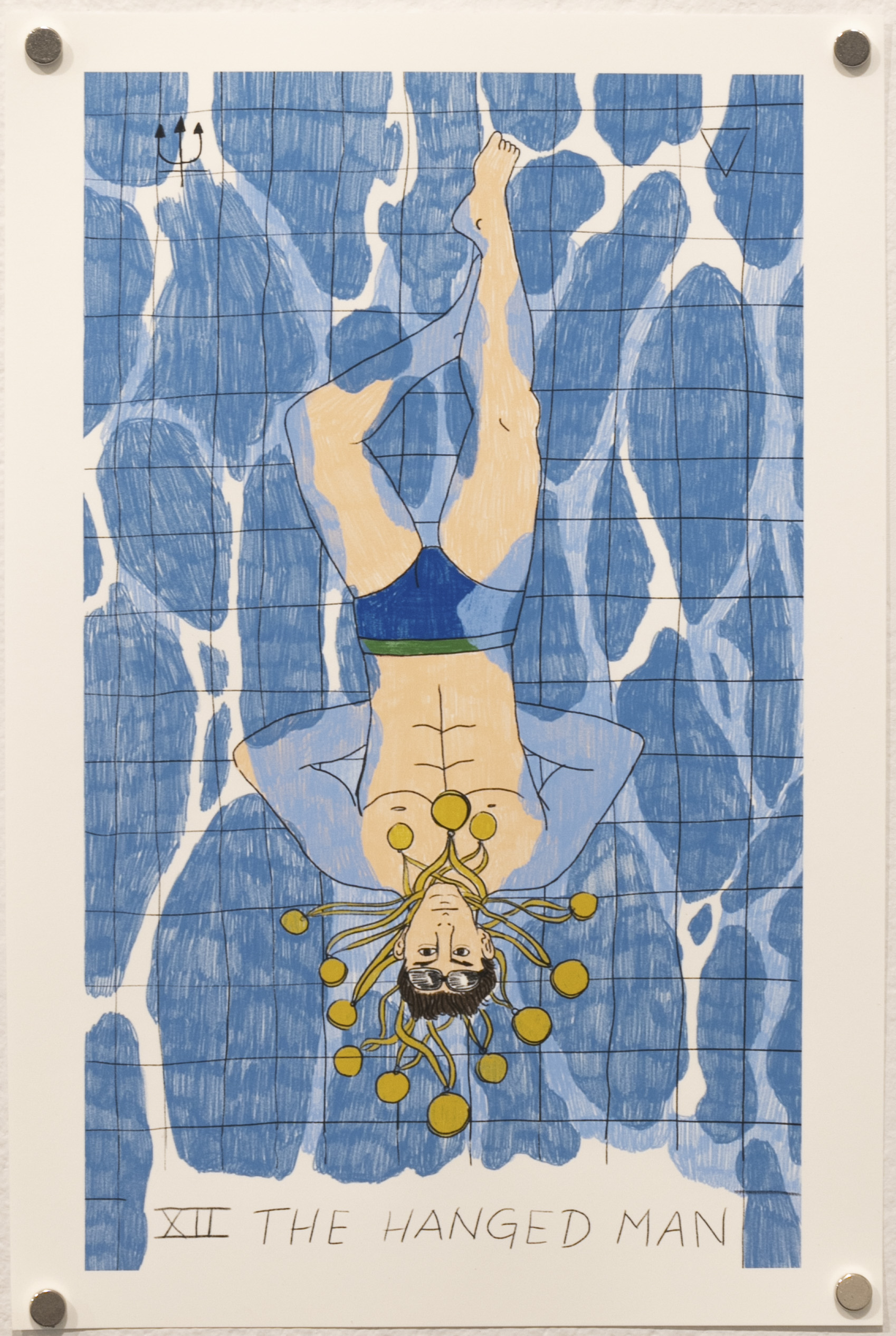
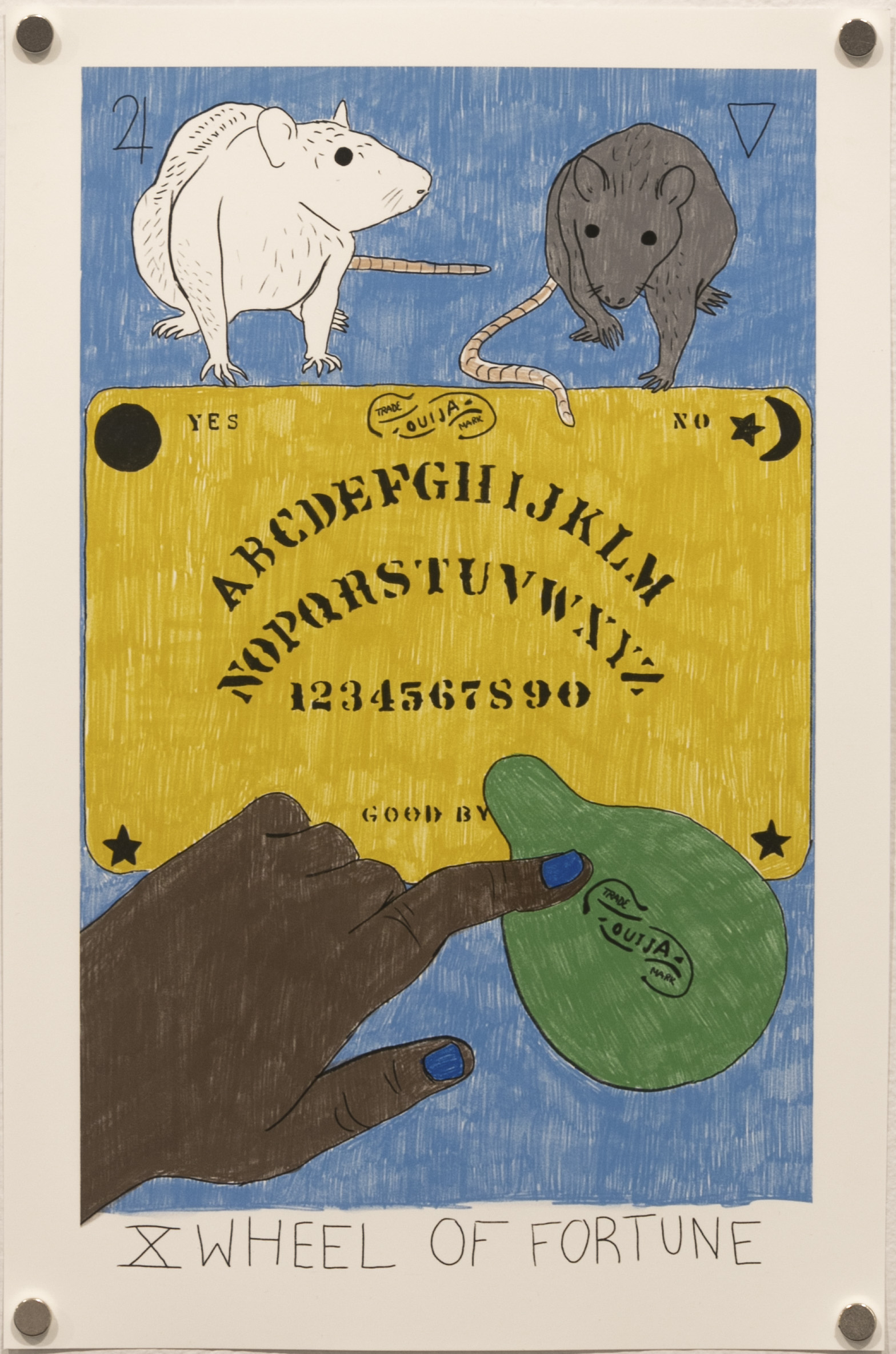
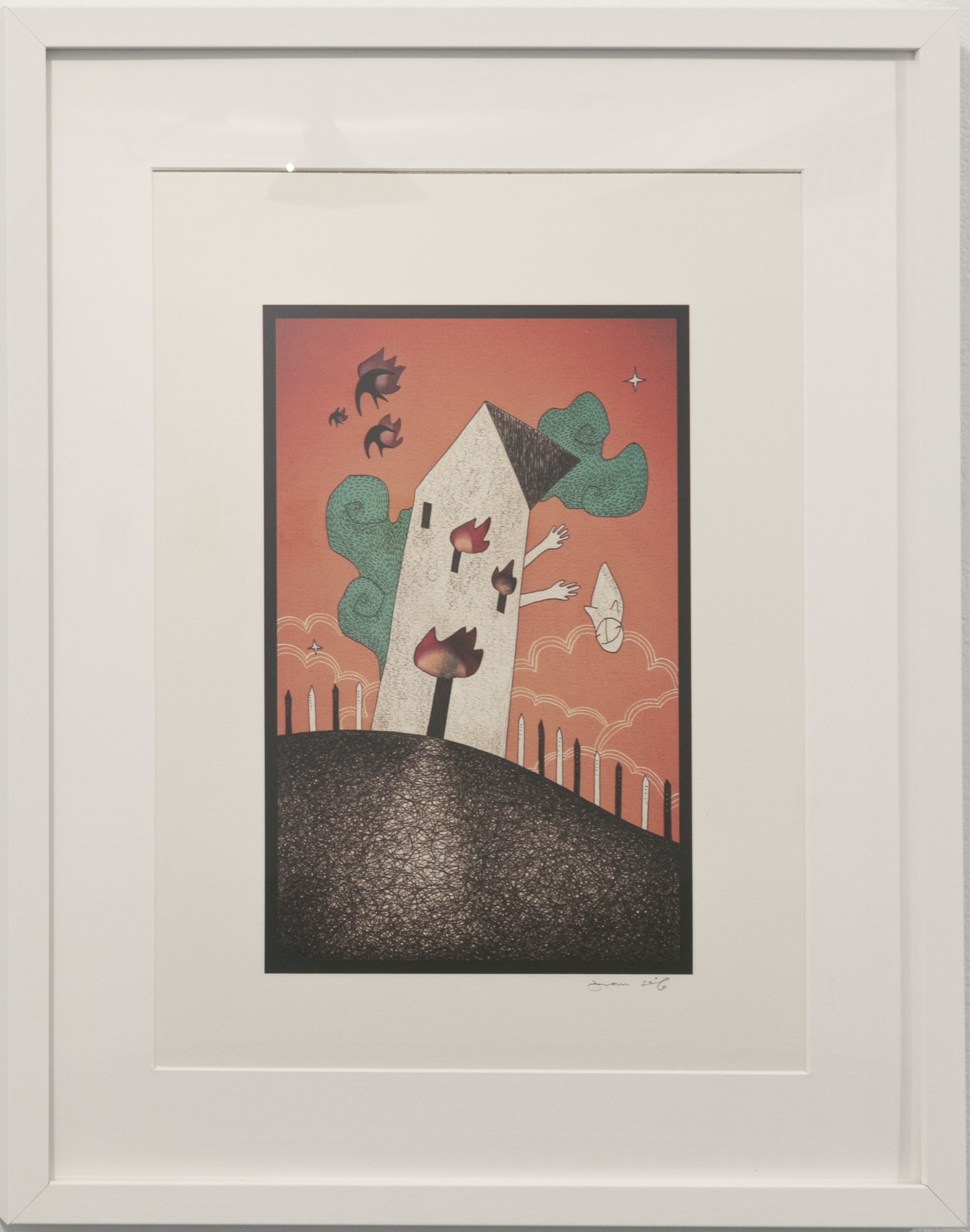
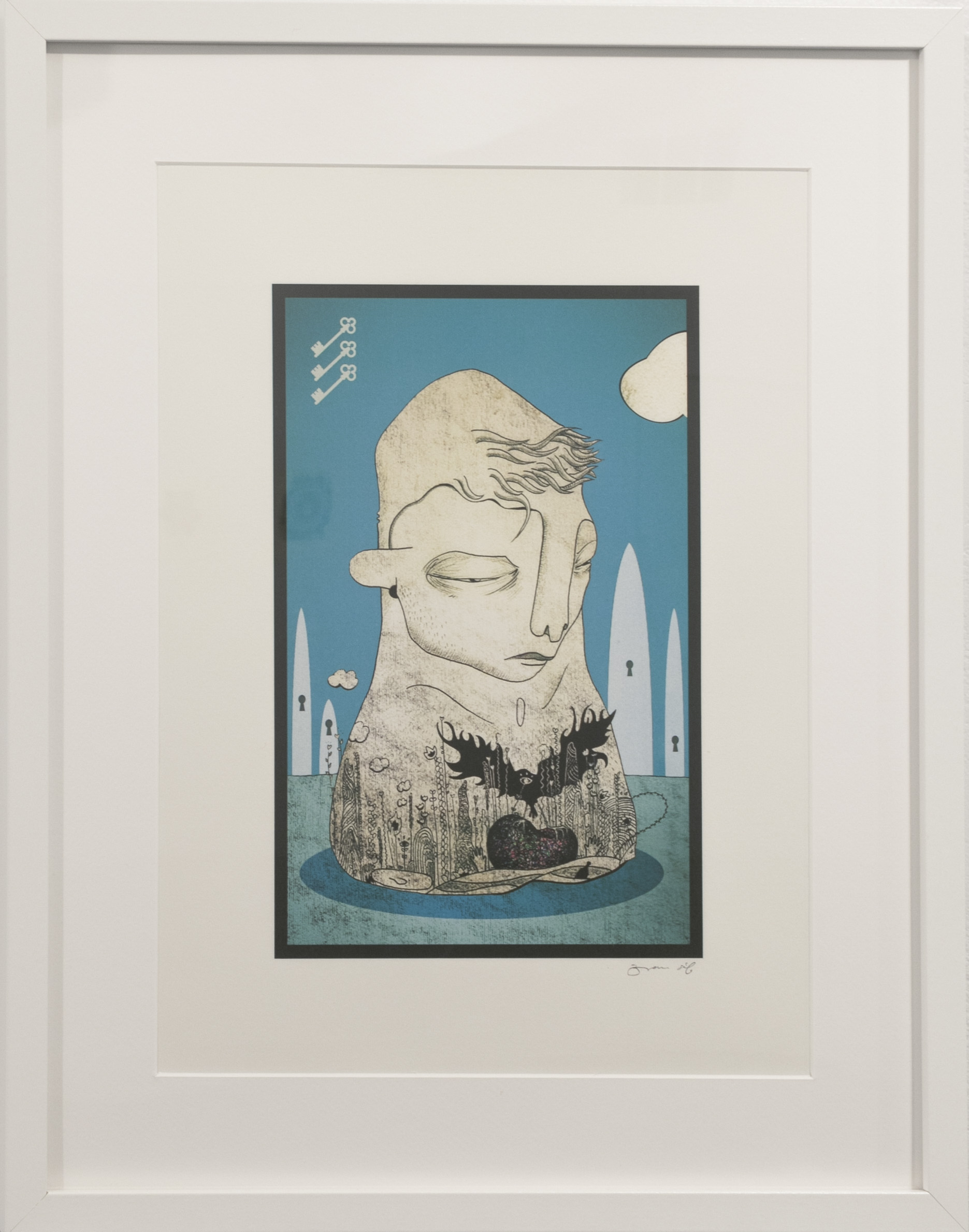
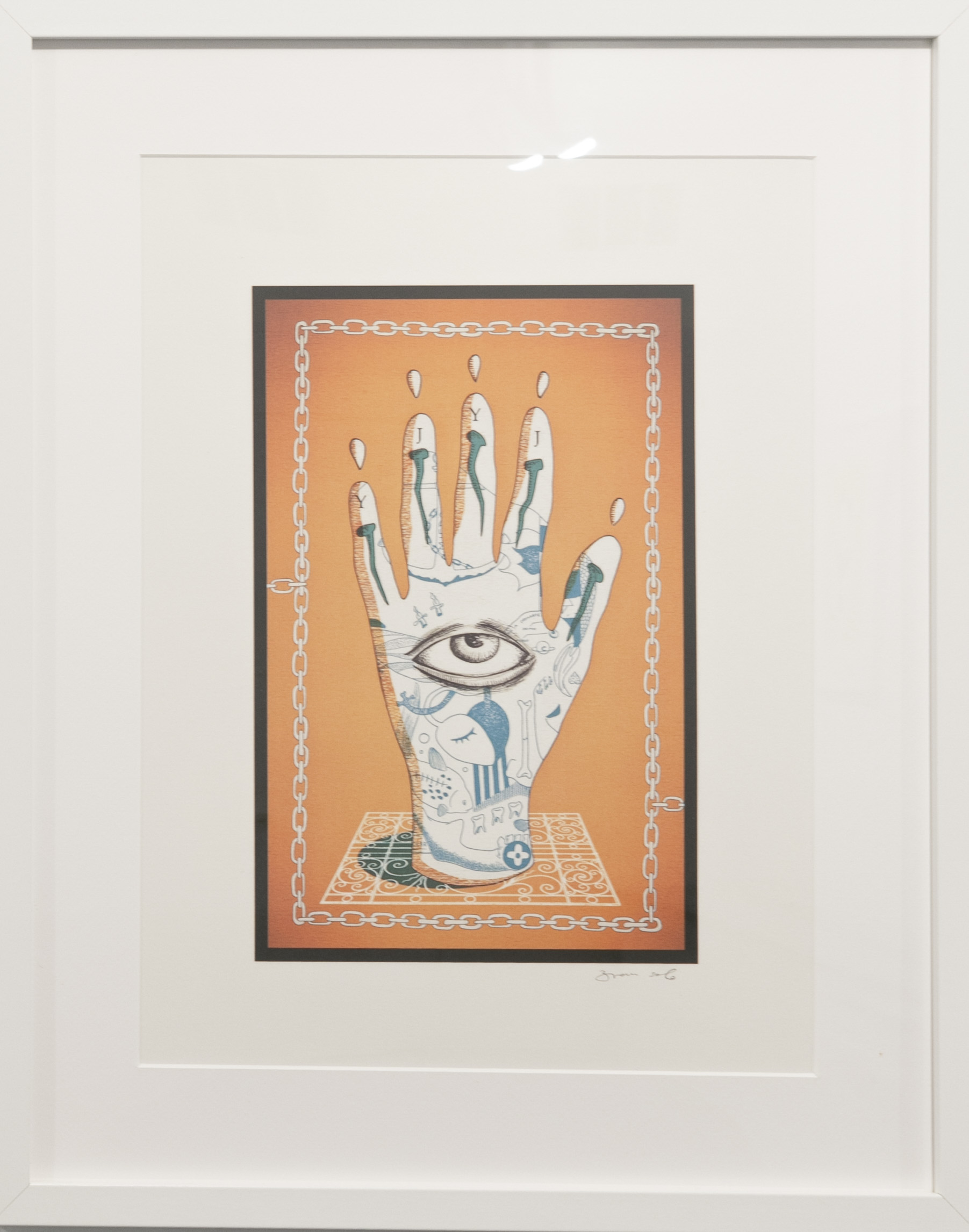
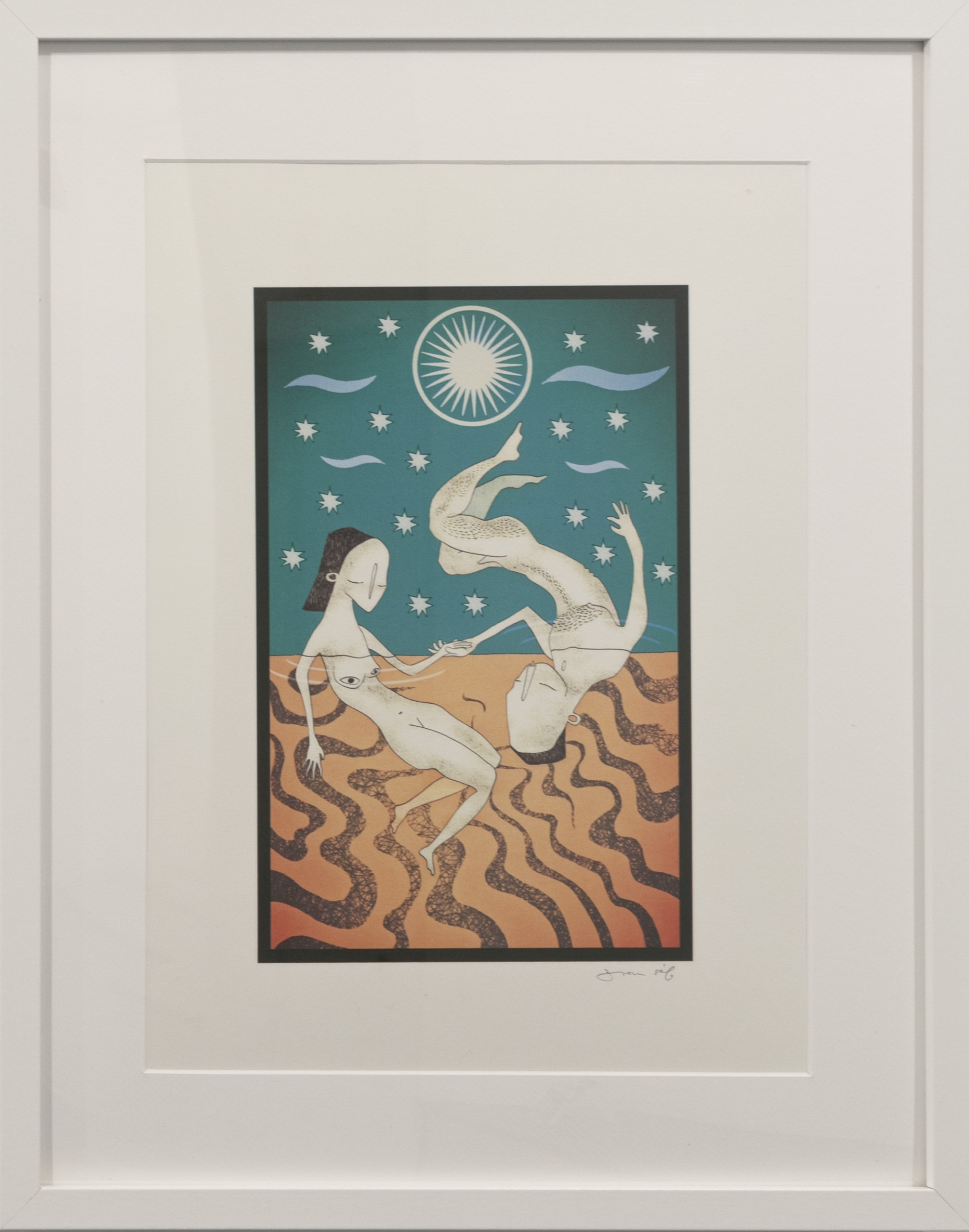
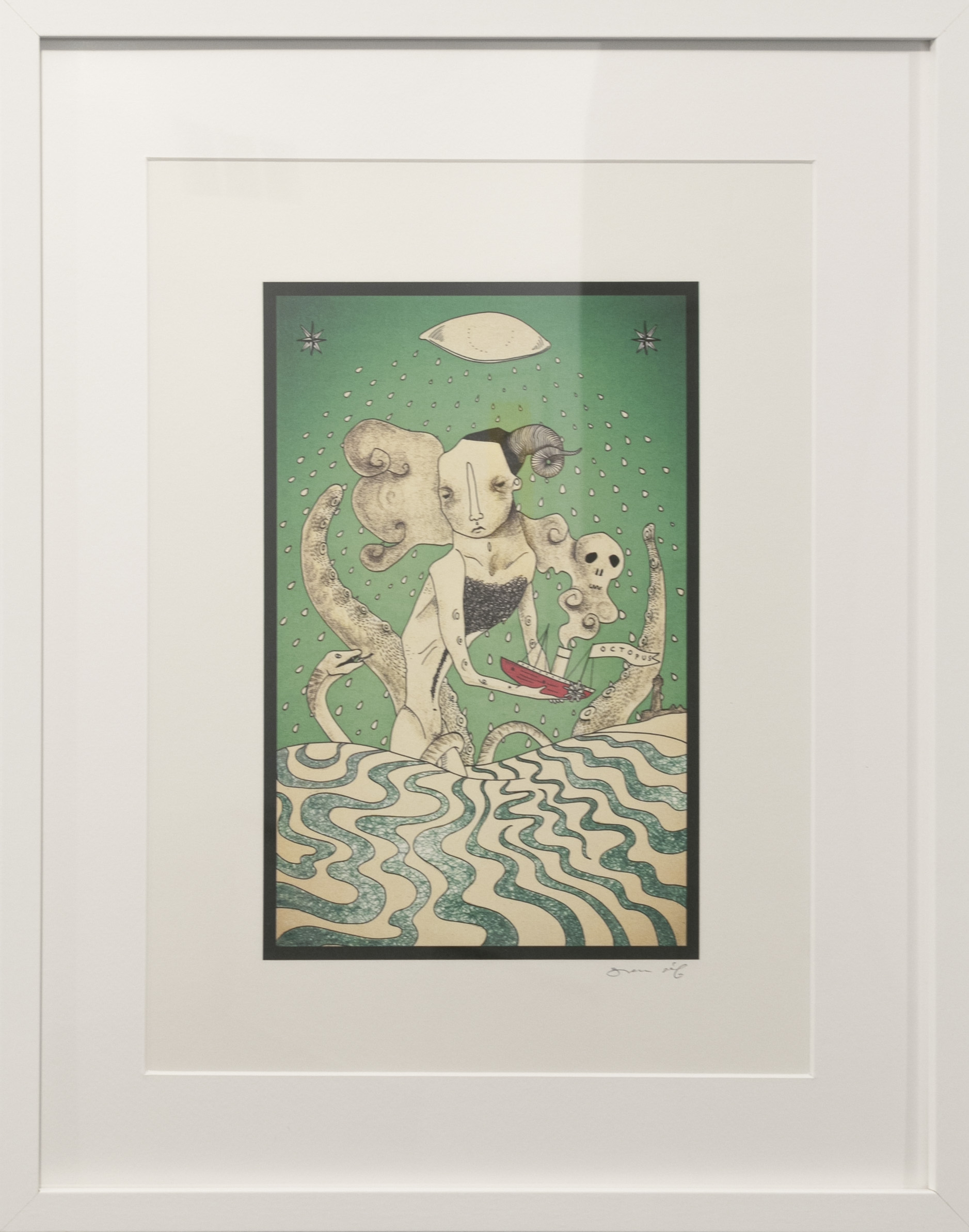
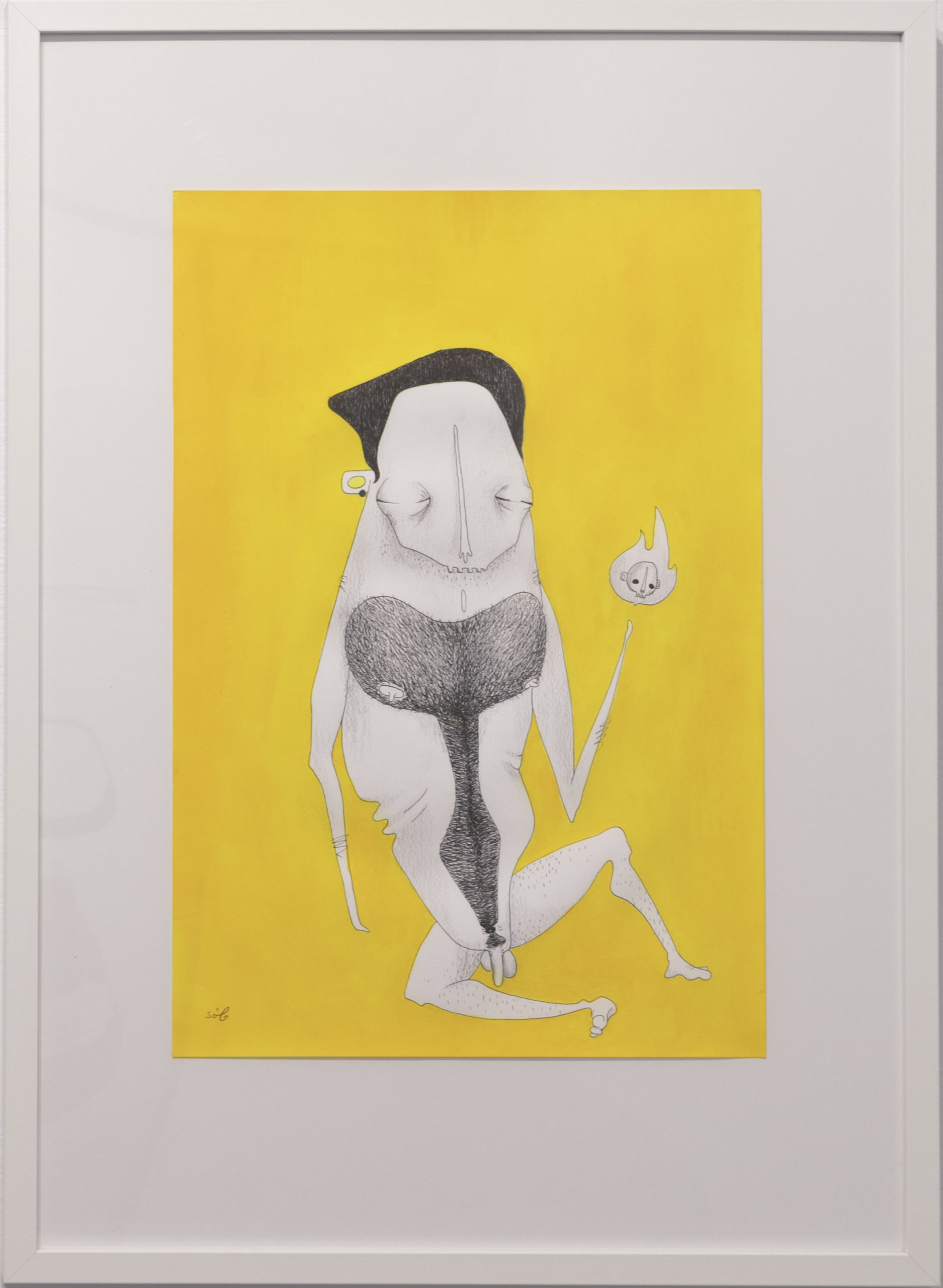
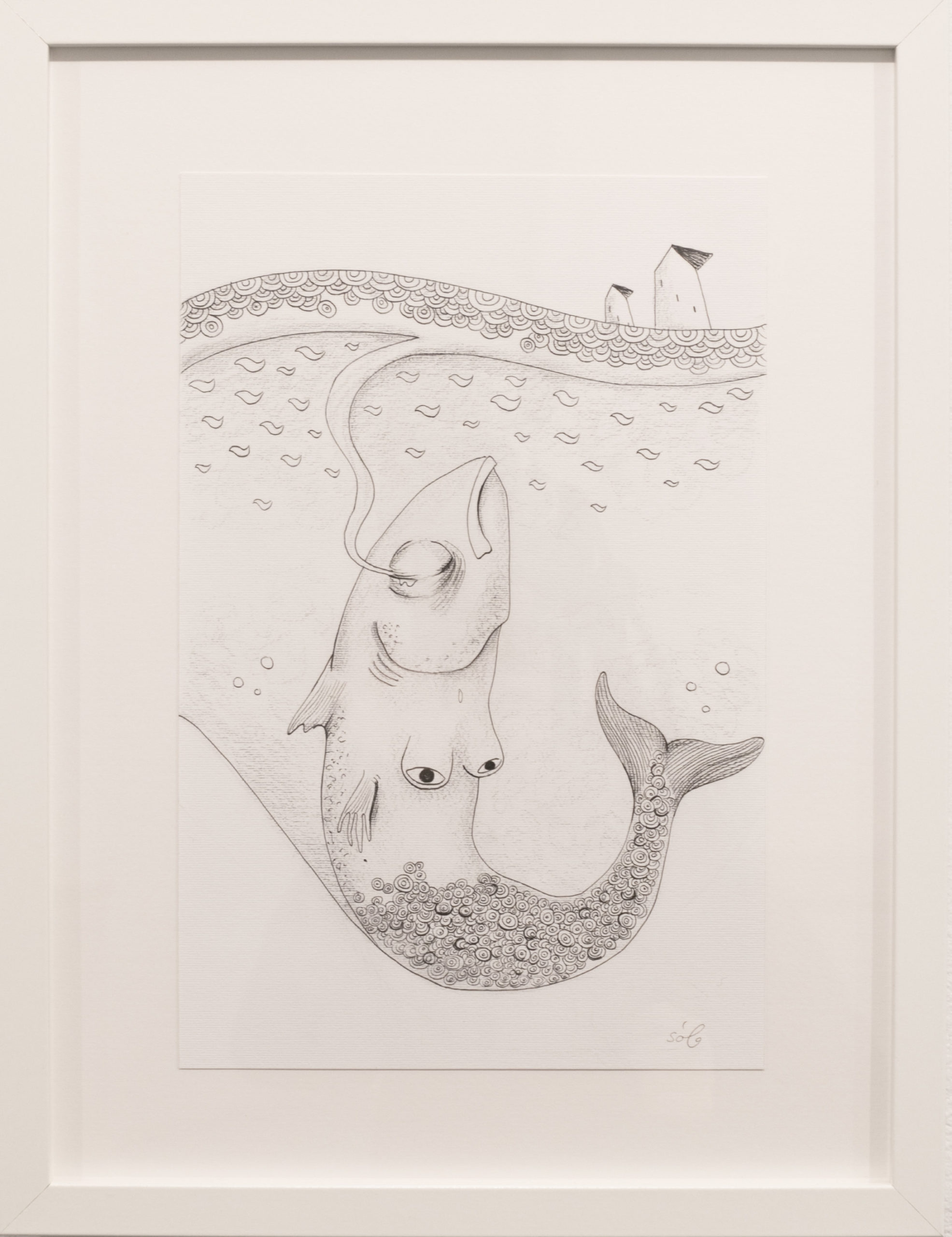
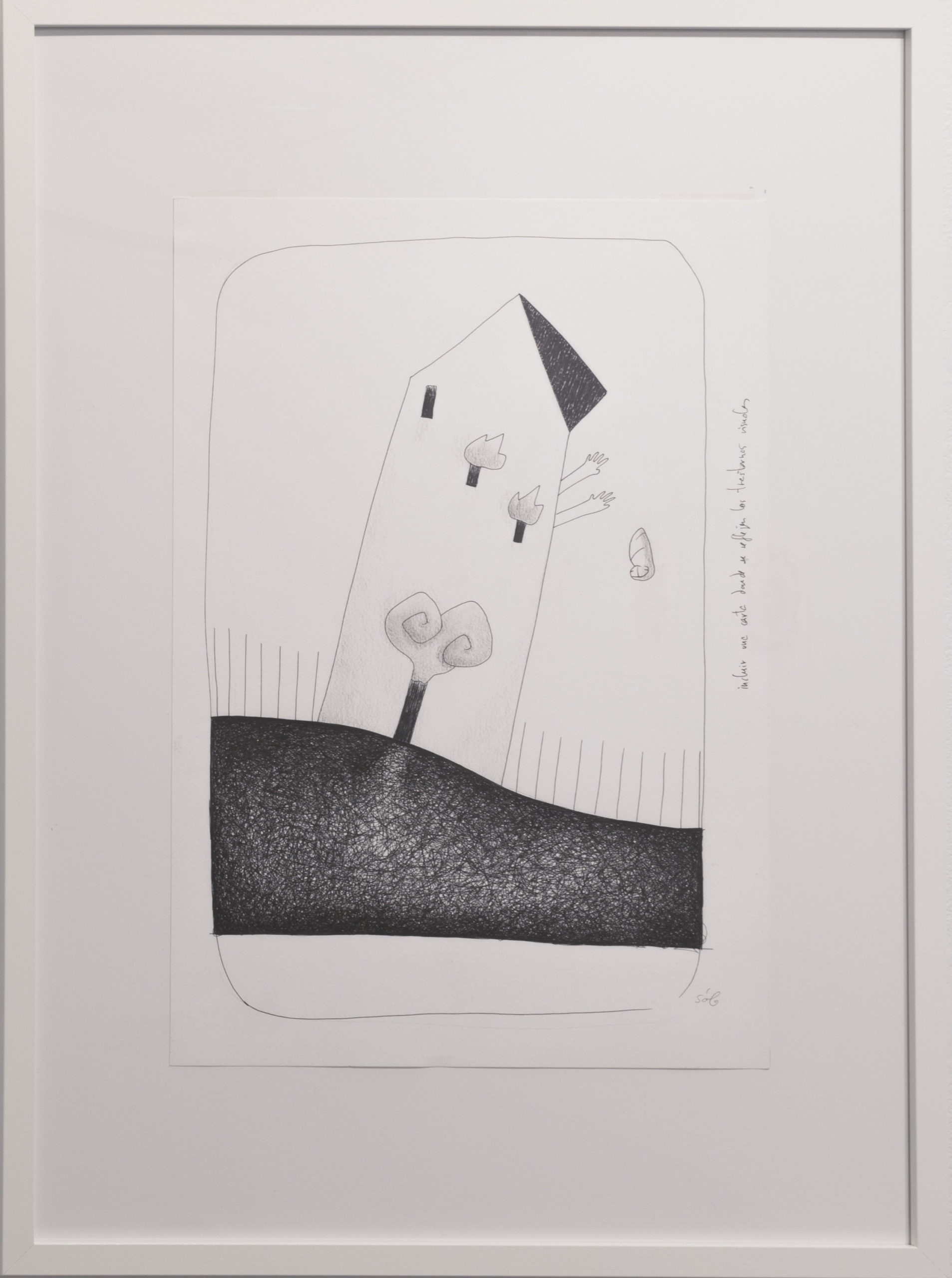
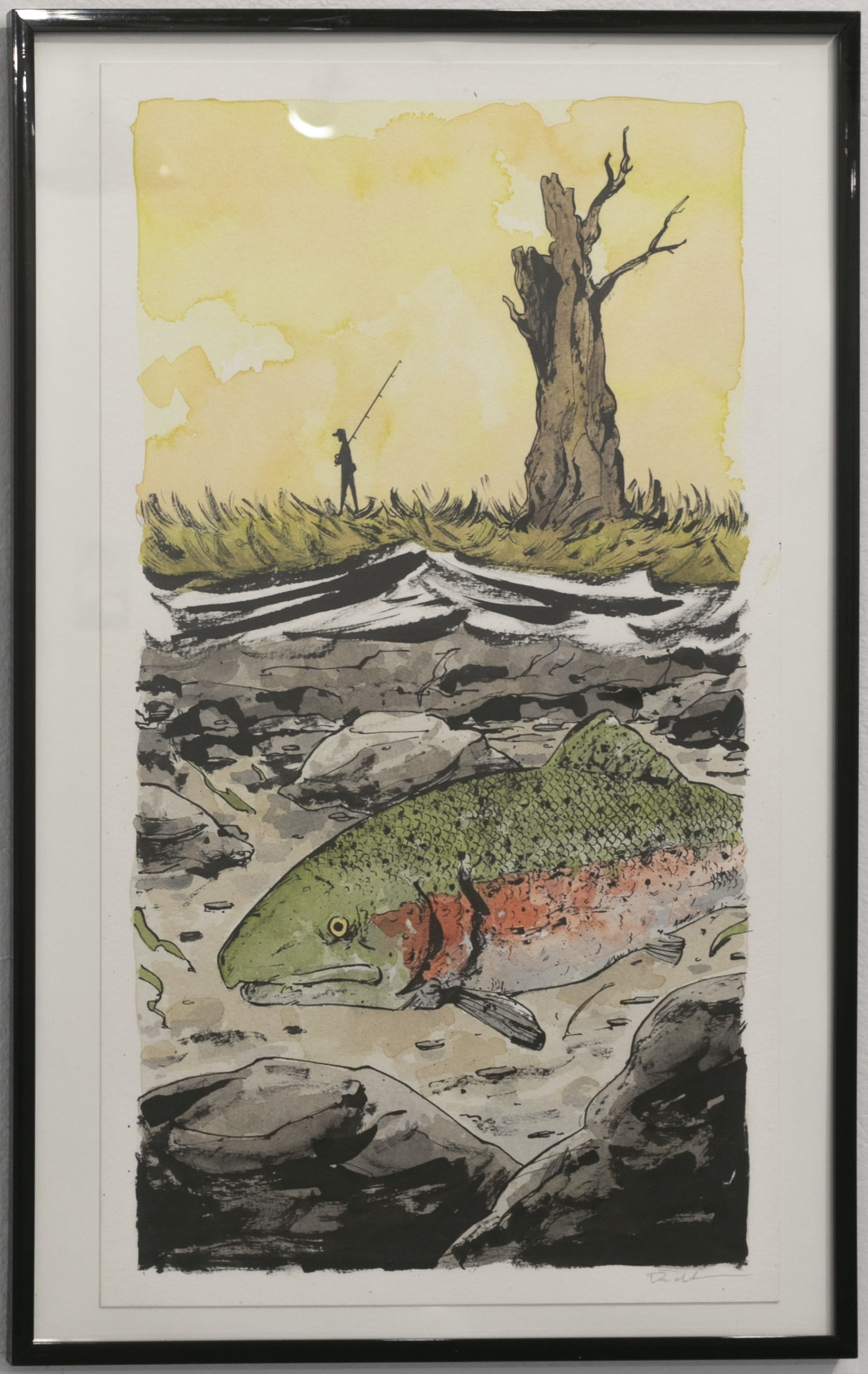

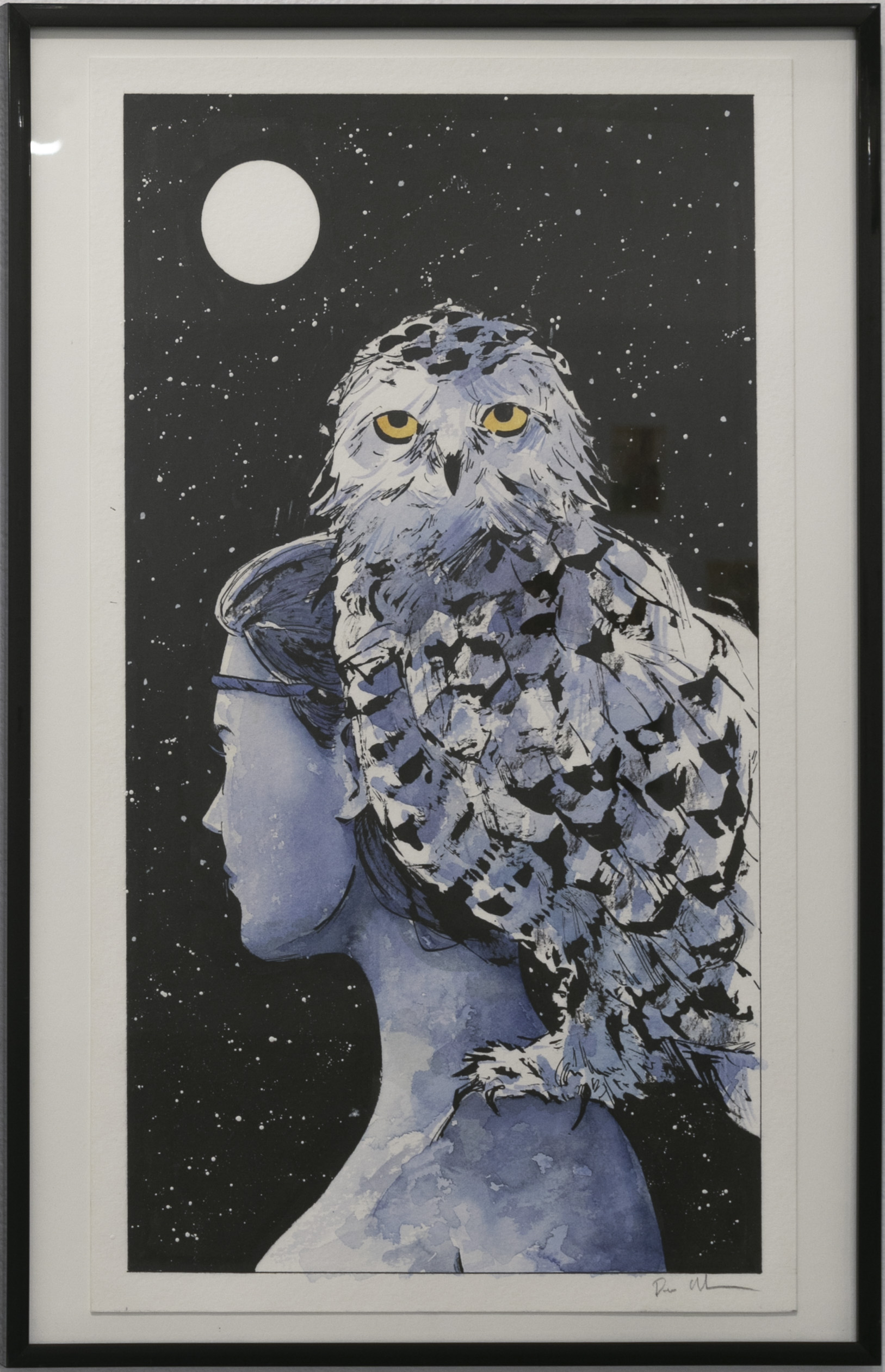
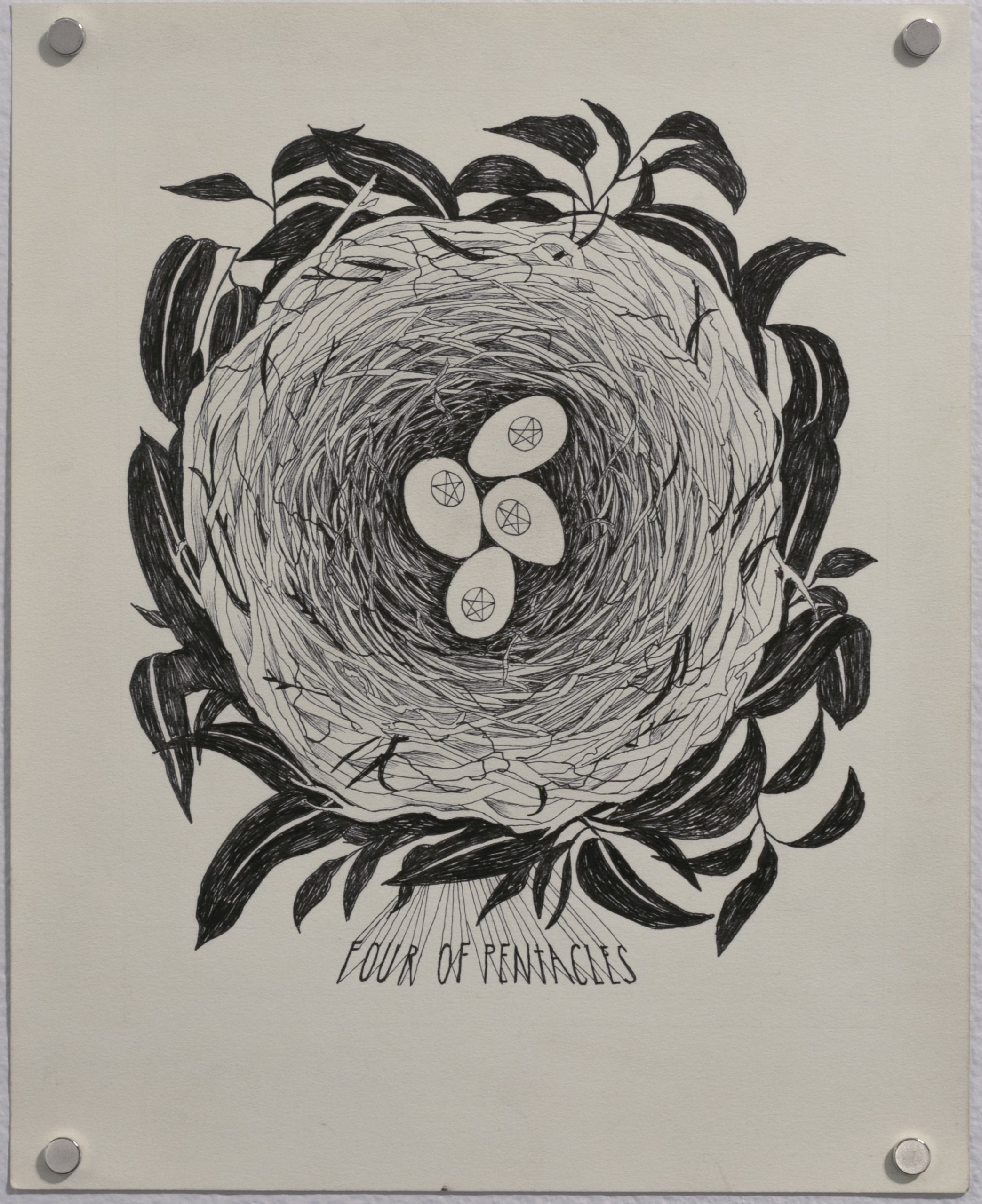
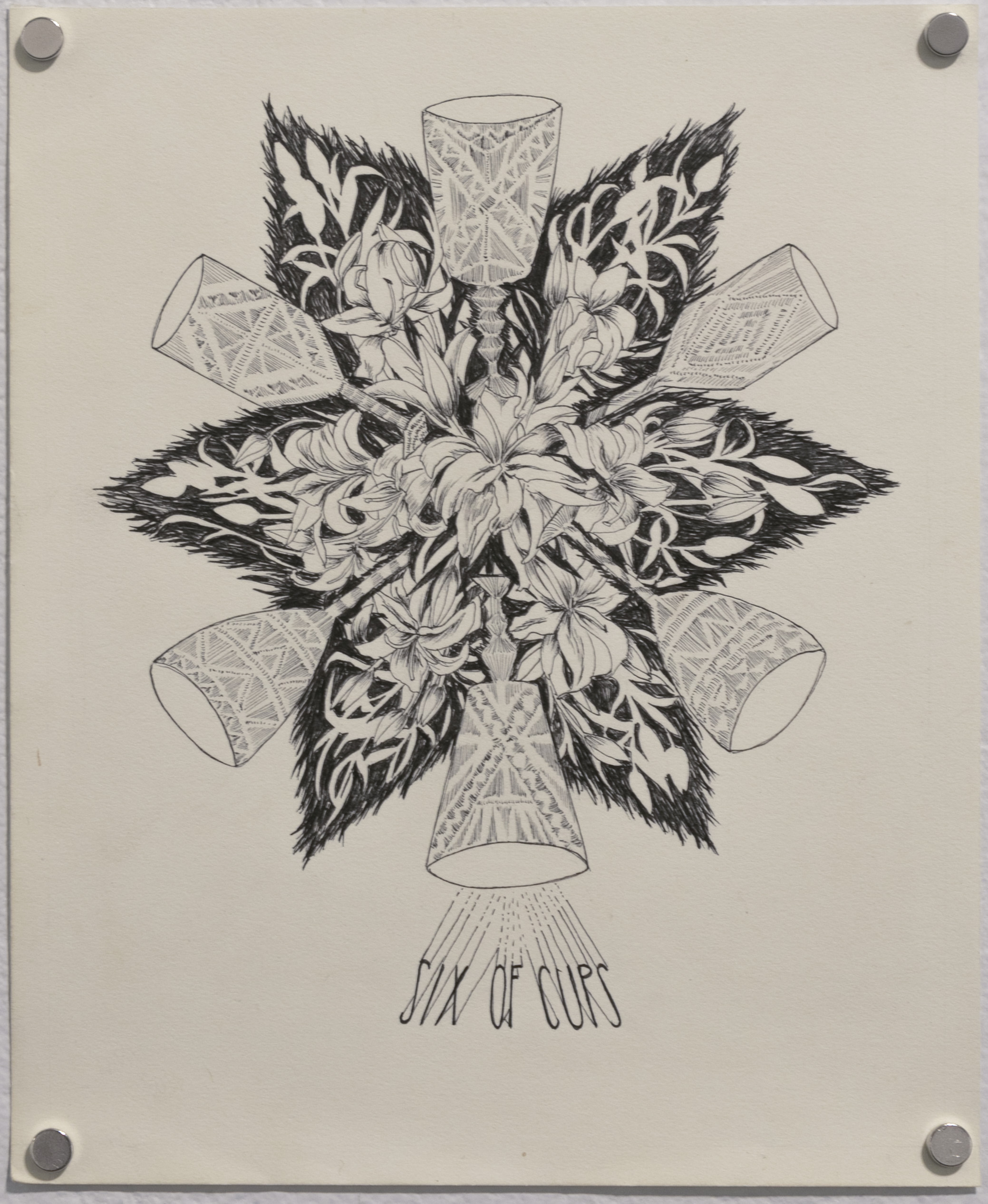
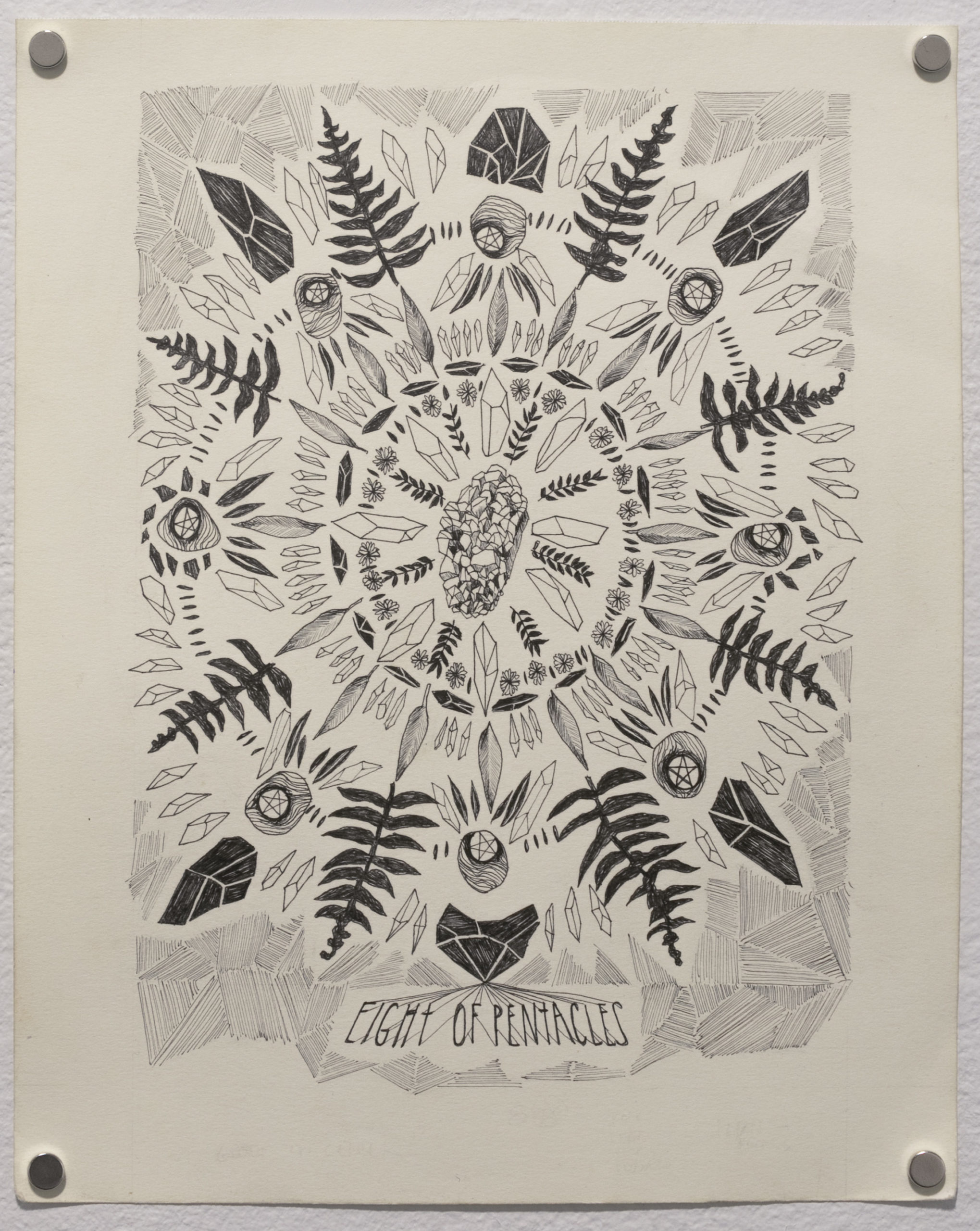
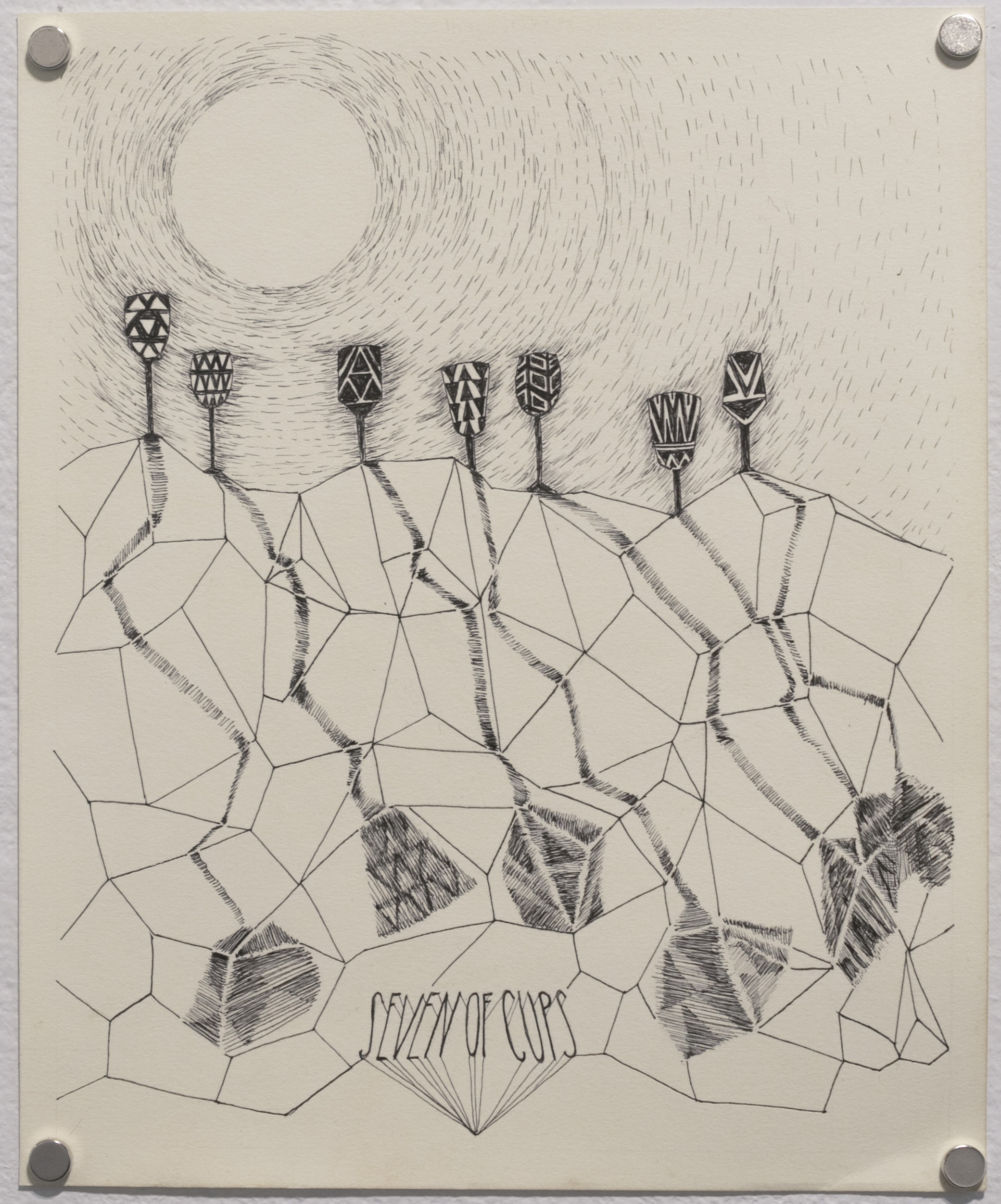
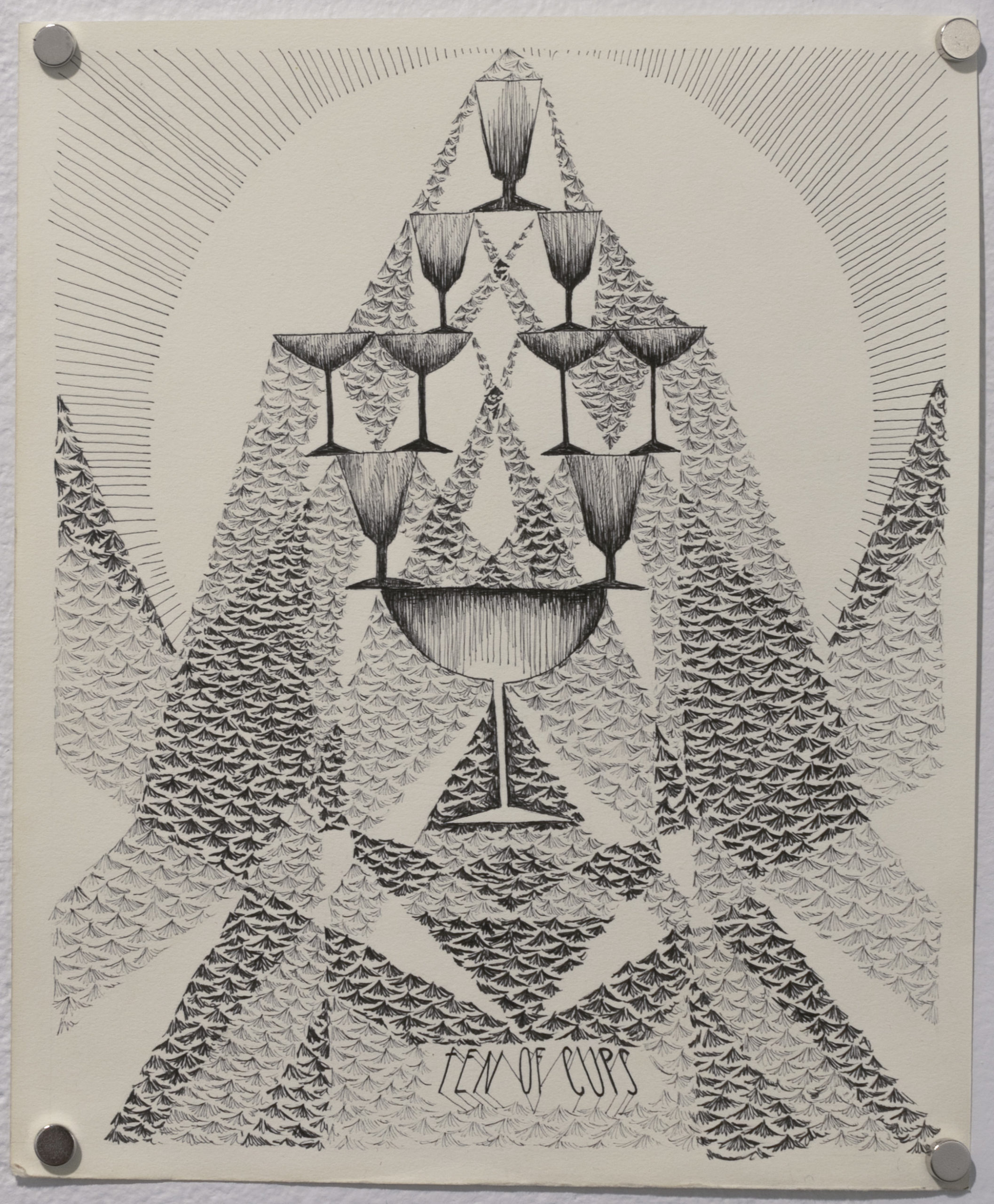
Artists:
MAGGIE BARD is an illustrator, printmaker, and designer, and received her BFA in printmaking from Pratt Institute. Her current work harks on the mysteries of the swamp, referencing the organic forms of the sub-tropics, with a little occultism sprinkled in. She is based out of New Orleans, working on various freelance illustration and graphic design projects, and completing a fully illustrated tarot deck.
CHICOME ITZCUINTLI was born in California to a Mexican mother and a white, US American father. He was raised with the traditions of his mother, learning English as a second language and taught to value and live by his Mexican heritage. While he was raised as a Mexican Catholic*, he has since embraced the Mexican traditional religion of Mexicayotl, the modern form of the religion that was practiced by the Native American peoples of Central Mexico before the arrival of the Spaniards. His paintings, textiles, and sculptures are informed by native Mexican spirituality, and seek to create ties between the spirituality and world view of his ancestors and the modern Mexican and Mexican American experience. Through the study of the Tonalamatl, a calendar of divination and numerology used in ancient Mexico; traditional peyote rituals with the Wixárica tribe, of whom his grandmother was a member; Mexicayotl dance and ceremony; and contemporary scholarship, his work attempts to decolonize the Mexican experience, and restore meaning to a maligned and forgotten part of Mexican heritage. Chicome currently lives in Mexico City, where he has resided for the last decade, with his husband and two dogs, and is working on a new version of the Tonalamatl as well as a tarot which explores Mexicayotl spirituality.
*[Artist’s note: Distinct from US Catholics, Mexican Catholics have a different set of traditions, which link us to our Native American past through such traditions as Day of the Dead, for example, or the worship of the Virgin of Guadalupe, who is also known as Tonantzin, the Aztec goddess of the earth.]
GABRIELLA SANTIAGO-VANCAK is an illustrator and writer based in Baltimore. Her work explores myth, monstrosity, gender, and health, using traditional and digital mediums. In 2018, she received an MFA in Illustration from MICA. She can be found online at gsantiagovancak.com and on Instagram @gabriellasanvan.
Born in Abarán, Murcia (Spain), in 1985, BRAN SÓLO defines himself as a “Good person, painter, illustrator, designer and photographer, as well as many other things I never wanted to be.”
After seven years of working in the technology sector, Sólo abandoned his work as a computer programmer to devote himself to drawing and enrolled in the School of Art of Murcia. While there, it was discovered that an eye disease, of unknown origin, had conditioned his perception from childhood.
A macular lesion, formed by scars in the central area of the retina, distorts the images he sees in a way that can best be described as “kaleidoscopic," sharply multiplying images with high contrast or brightness such that he cannot distinguish with certainty a white area from a black one, confuses volume with emptiness, and may perceive objects multiplied up to eight or ten times, depending on distance, and especially those that are luminous. This condition, which forces his brain to interpret reality very subjectively, gives his art a “unique vision,” which he maintains with good humor “is the most important quality that an artist must have.”
After finishing his studies in 2014 and graduating in Plastic Arts and Design in Illustration, Sólo moved to Madrid where he officially began his artistic career. The following year he moved to Barcelona and held his first solo exhibition Perfume de flor de cuchillo at Kipfer & Lover, in Malaga, and in 2016 returned to Murcia where he currently resides.
Since then, Sólo has exhibited widely —at the Carmen Thyssen Museum in Malaga, ESTAMPA fair in Madrid, at the gallery NB7 of the FLECHA fair (also in Madrid), as well as in other spaces such as Échale Guindas Galería, Matraca Gallery, Villa Puchero Factory, Factoria de Arte y Desarrollo, Swinton & Grant, The Folio Club, Nigredo Espacio, El Gallinero or Vergel Espacio. In addition, he regularly collaborates with the publishers of 180hilos, exhibiting works in serial edition at MACBA and CCCB in Barcelona, CAIXA Forum Madrid and at the Centre Pompidou in Malaga, as well as ARCO Art Fair 2018 (Llibreria Laie Stand).
In 2018, he published the Tarot de Laguna, a research and personal development work based on the fundamentals of psychoanalysis. He is currently researching the relationship between science and art, which he says is “inseparable from me,” and exploring other subjects such as masculinity, fear and human emotions, love and blindness.
MATT STANSBERRY is an Ohio-born writer focusing on natural history and biodiversity. His first book is Rust Belt Arcana, available November 2018 from Belt Publishing. He lived in Oregon for a while and contributed to national fishing magazines, including On The Water and The Fly Fish Journal. Now he lives in the Piedmont of central North Carolina with his wife and three young sons and writes essays about the wildlife he encounters in my new home. Visit his website.
DAVID WILSON is an illustrator, designer, writer, and filmmaker living in Stow, Ohio. David is co-author of Rust Belt Arcana, writer and director of The Disposal of Dead Ned, Creative Director at Belt Publishing and author of The Everyday. His work can be found at www.workdavidwork.com
View in our Virtual Gallery Space
Pop-up decks from our Feb 29, 2020 opening
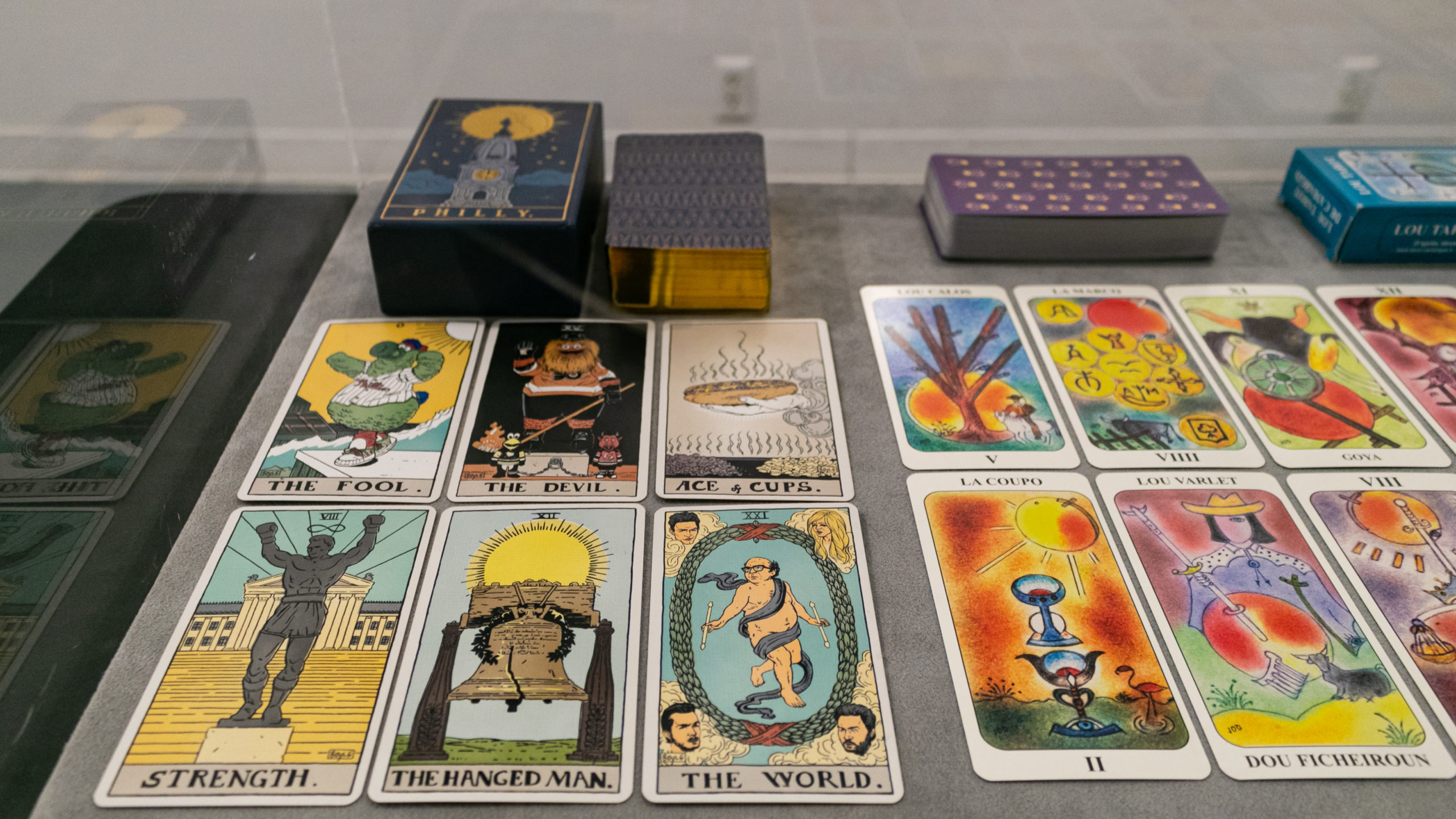
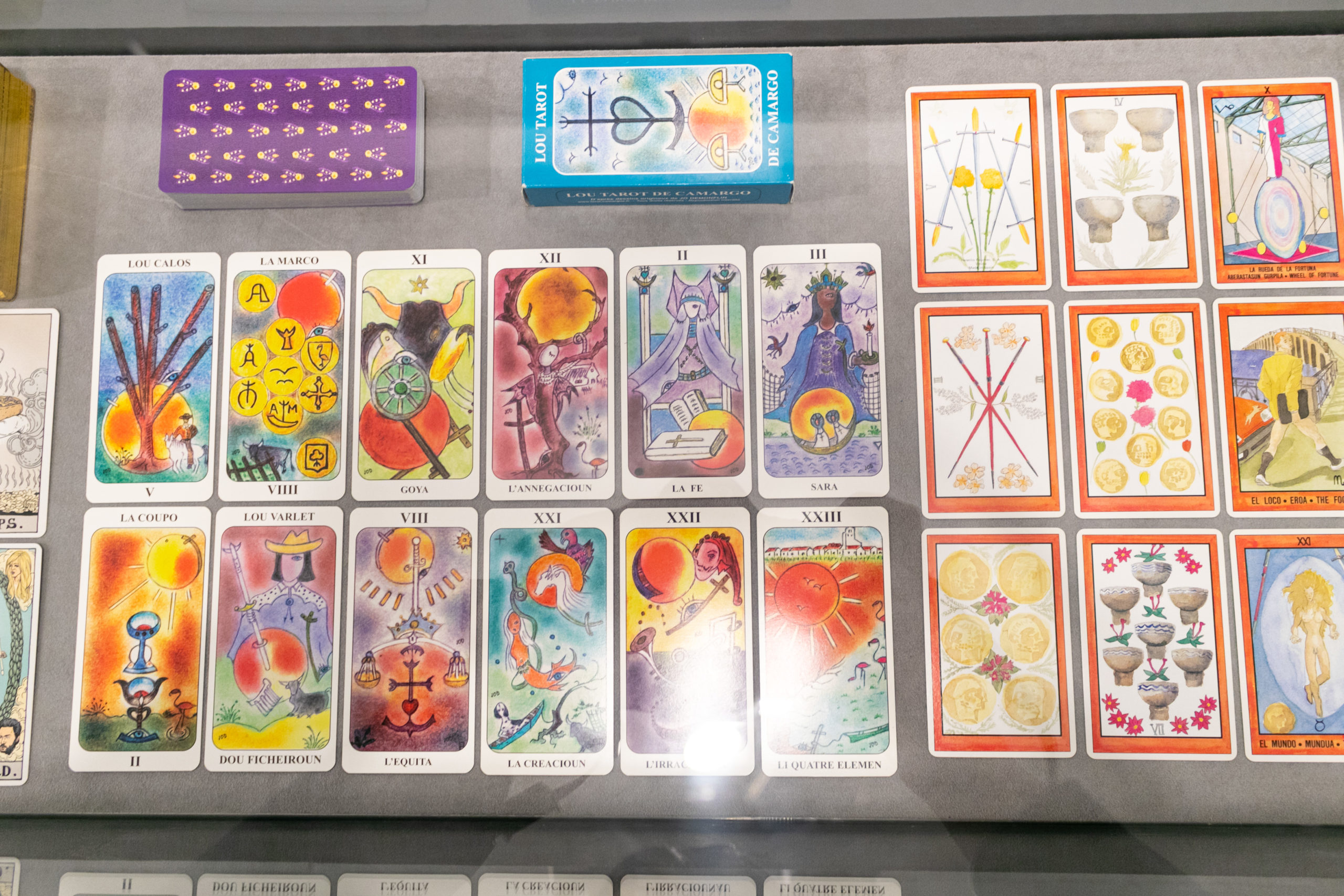

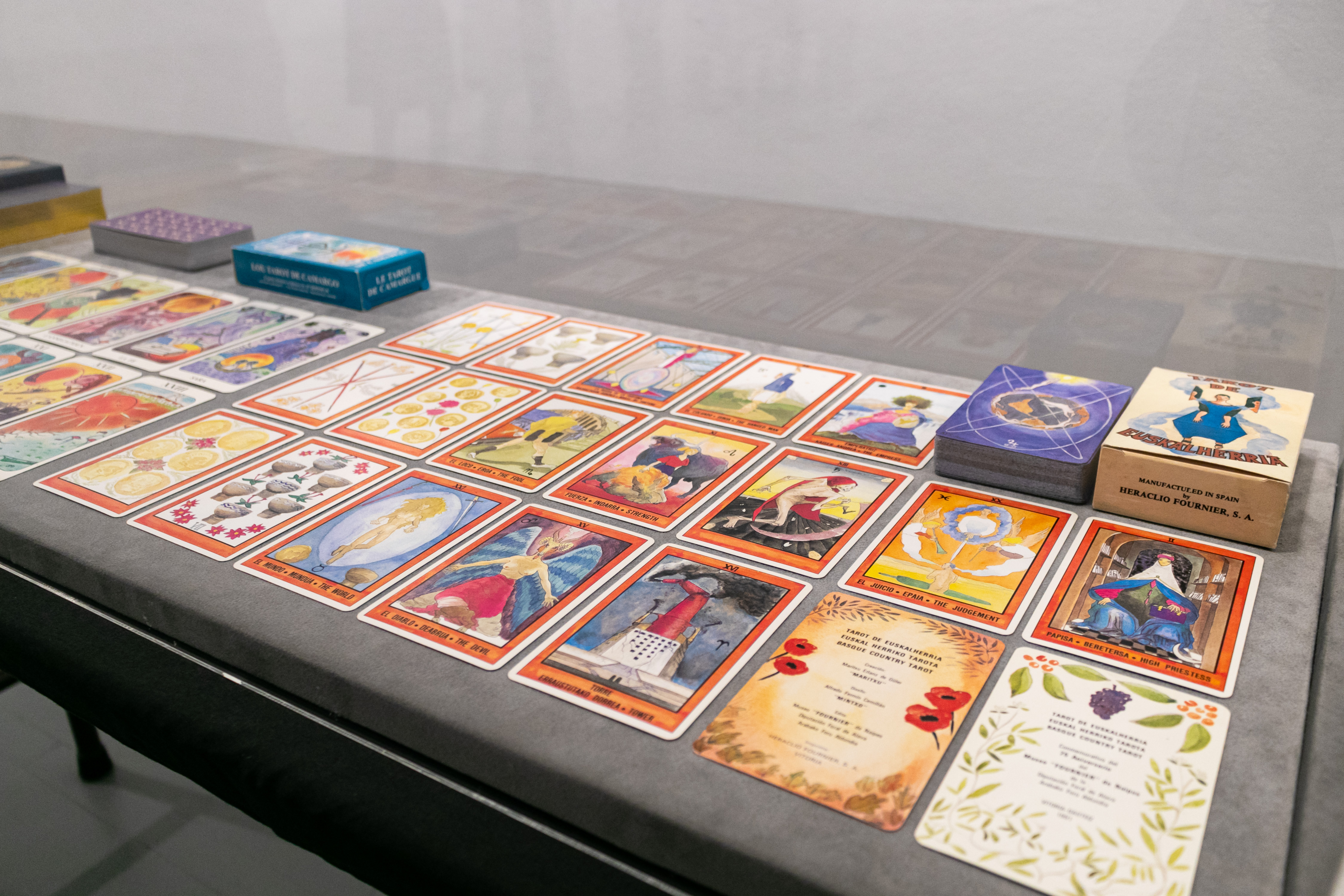
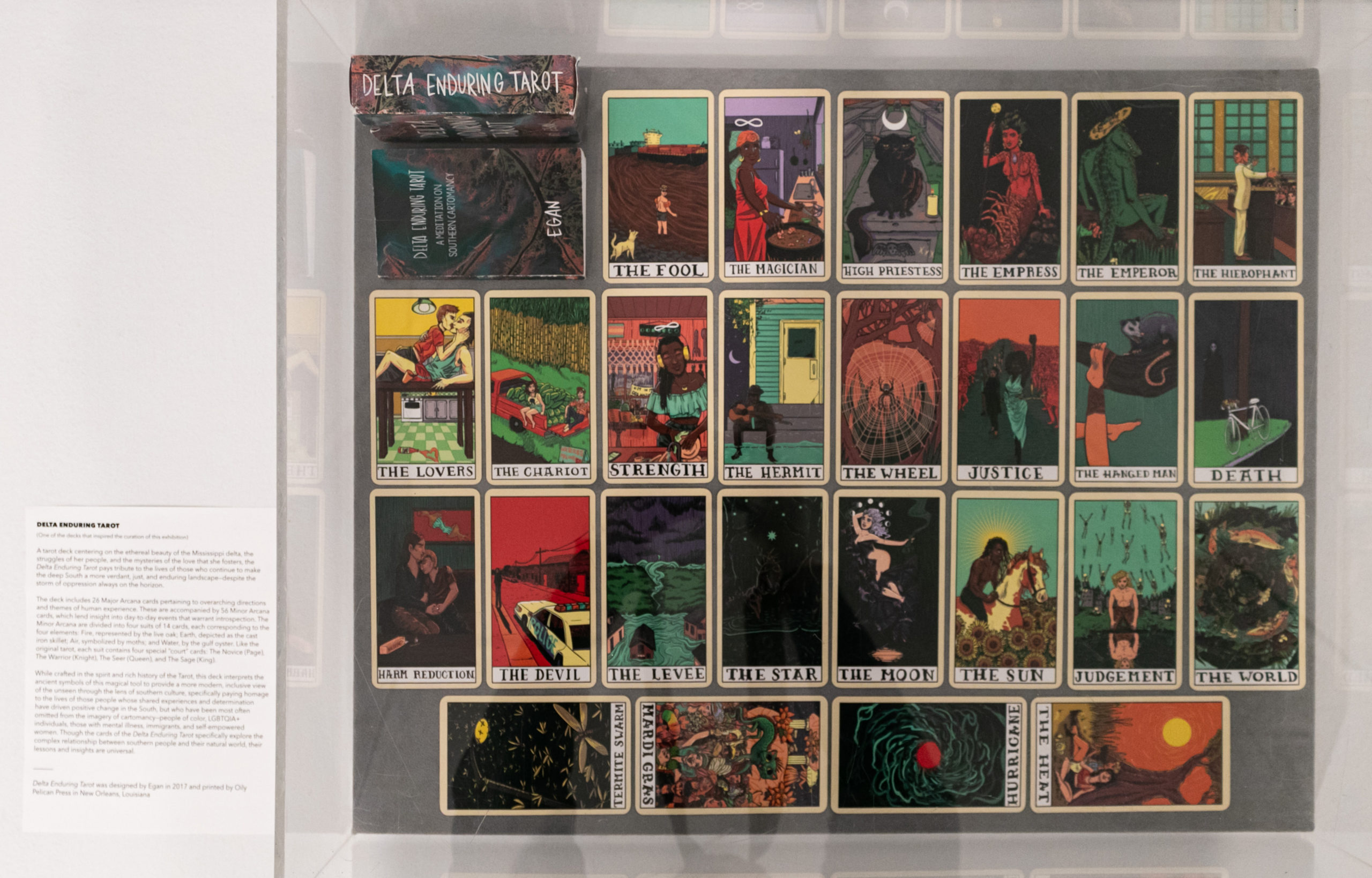
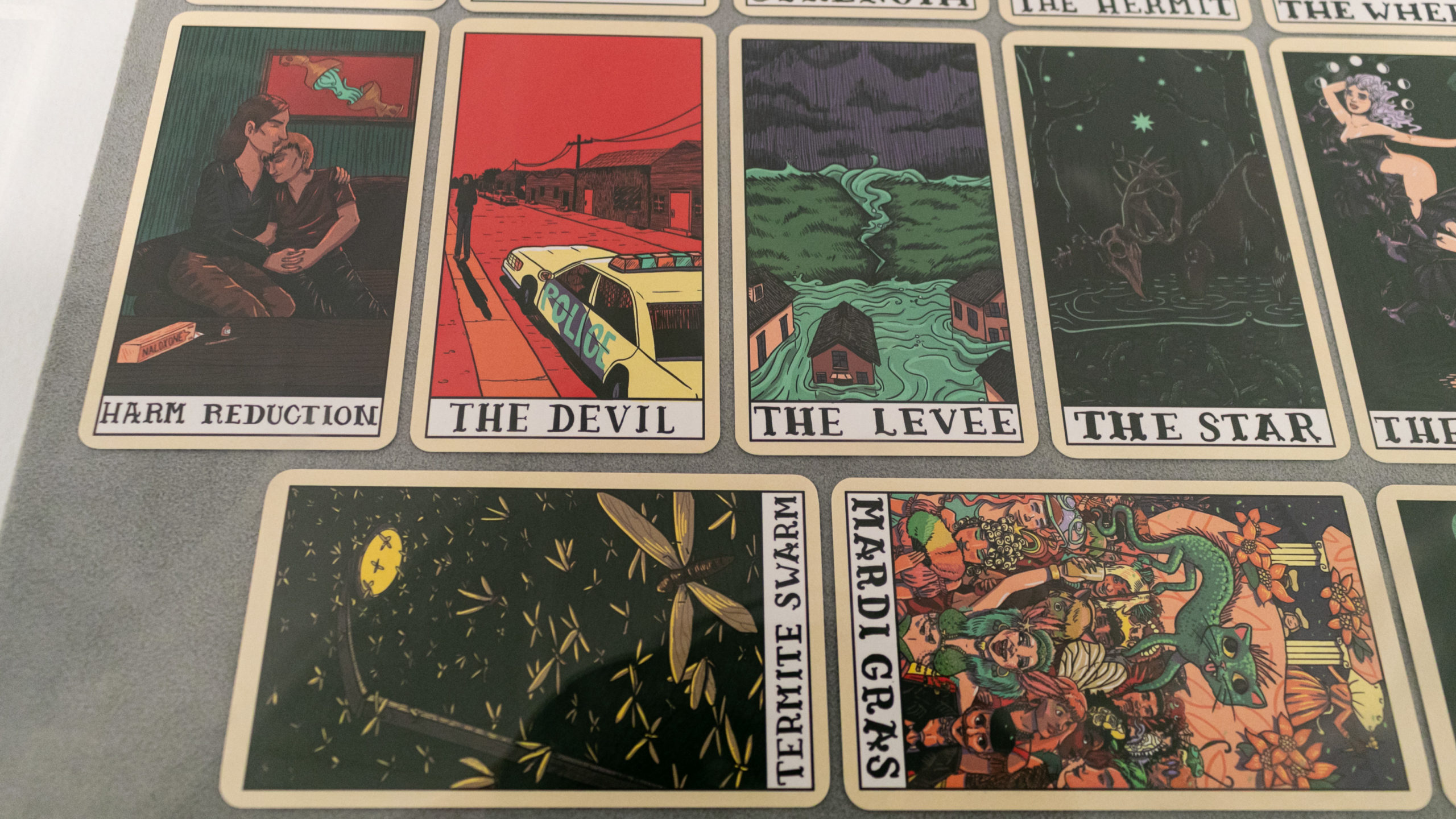
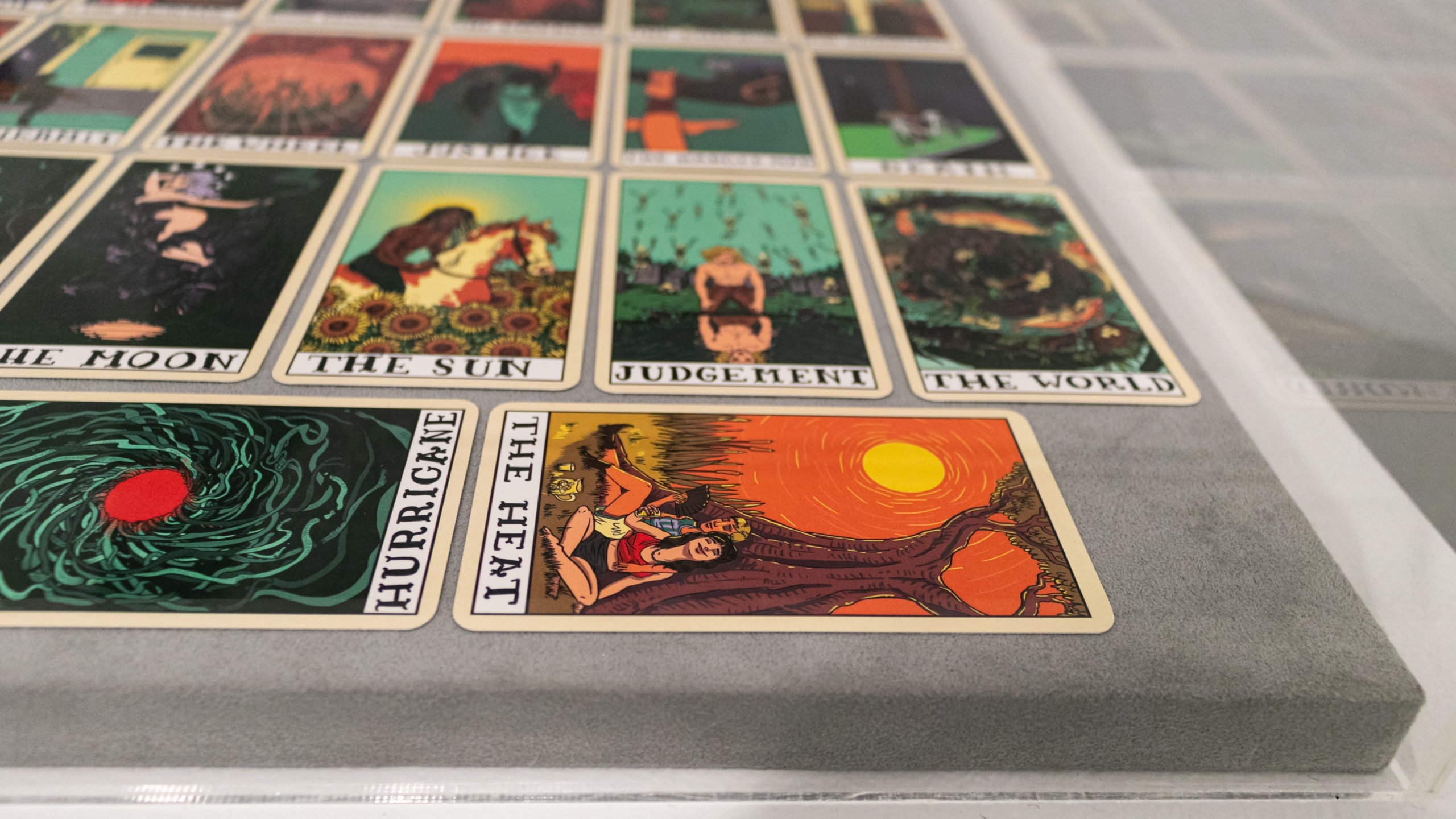
We acknowledge that in Milwaukee we live and work on traditional Potawatomi, Ho-Chunk, and Menominee homelands along the southwest shores of Michigami, part of North America’s largest system of freshwater lakes, where the Milwaukee, Menominee, and Kinnickinnic rivers meet and the people of Wisconsin’s sovereign Anishinaabe, Ho-Chunk, Menominee, Oneida, and Mohican nations remain present.
We further acknowledge the grave evil colonialism introduced to these lands through genocide as well as slavery, and also via racist and xenophobic beliefs, laws, and practices that continue to inflict harm upon Black, brown, and Indigenous lives. We honor those who have lived—and do live, now—at these intersections of identity and experience, and are committed to the active dismantling of white supremacy.
720 E. Locust Street
Milwaukee, WI 53212
Phone: 414 263 5001
Hours: Tues–Sun | 12-7 pm
Closed Mon
Building Accessibility: Despite the age of our physical location, and attendant limitations to access, Woodland Pattern is committed to making its programs and facilities available for as many as possible. Please call for more information.
Events Accessibility: Woodland Pattern is able to offer captioning services for its online events and with advanced notice can provide ASL interpretation for live events. Please contact us with accommodation requests and questions.
© Woodland Pattern 2024
